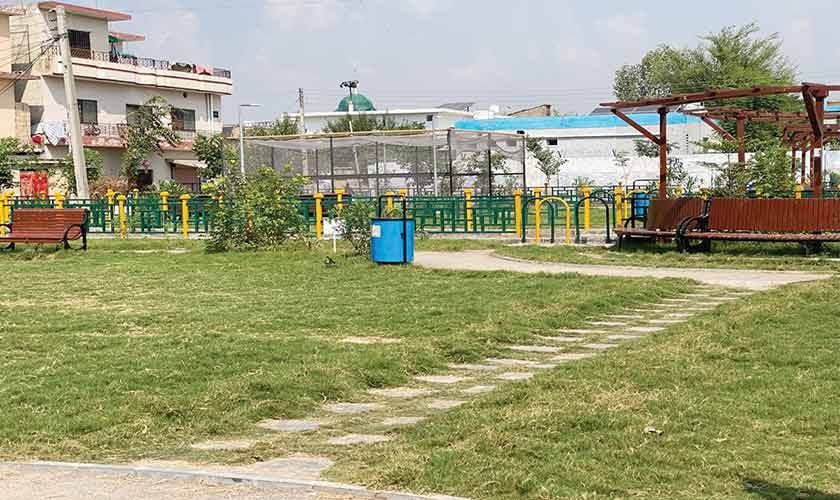Pakistan is currently struggling against a public health challenge of a dual nature: the persistence of communicable diseases alongside the rapid rise of non-communicable diseases (NCDs). This double burden of disease strains Pakistan’s already crippling healthcare infrastructure and jeopardizes the well-being of its citizens.
Amidst this complex situation, a new threat has emerged and is spreading at an alarming rate: tobacco-free nicotine pouches. Marketed with deceptive appeal, these products pose a significant and often underestimated risk to an individual’s health.
### What Are Nicotine Pouches?
Nicotine pouches are small sachets placed between the gum and lip, widely advertised as a modern and discreet way to consume nicotine. Unlike traditional tobacco products, these pouches contain nicotine powder extracted from tobacco leaves or synthetically manufactured. Their appeal is enhanced by a wide variety of flavors and the absence of smoke or spit, which are often associated with other tobacco products.
Marketed as tobacco-free or tobacco leaf-free, nicotine pouches have seen a significant recent surge in popularity. This has led to a common misconception that they are harmless.
### The Health Risks of Nicotine
Nicotine is a highly addictive substance with numerous detrimental health effects. Unregulated marketing and the rapid increase in use raise serious public health concerns about its long-term impact.
Nicotine is a potent psychoactive compound that can profoundly affect the human body. Its use leads to addiction—a chronic, relapsing brain disease characterized by compulsive drug seeking and use, despite harmful consequences. This addiction, particularly when it begins in youth, can disrupt brain development. Normally, the brain continues to develop until a person’s mid-twenties. Early exposure can impair cognitive functions, including attention and learning, and may increase the likelihood of addiction to other substances later in life.
### Cardiovascular and Oral Health Concerns
Clinical trials have well-documented the extensive health risks associated with nicotine. Nicotine use has been linked to several cardiovascular issues: it can cause an increase in heart rate and blood pressure, placing added strain on the heart. Long-term use can contribute to the hardening of artery walls, increasing the risk of heart attacks and strokes. These conditions already represent a major part of the NCD burden in Pakistan, and the proliferation of nicotine pouches threatens to exacerbate this crisis.
Local effects of nicotine pouches on oral health are also a serious concern. Placing the pouch directly against the gums can lead to irritation and inflammation. Prolonged and repeated use can cause gum recession, where the gum tissue pulls away from the teeth, exposing roots and increasing the risk of dental caries and tooth loss. While the long-term impact on oral cancer is still under study, the potential for chronic irritation and inflammation of oral tissues remains a significant health risk.
### The Regulatory Vacuum and Its Consequences
The market for nicotine pouches in Pakistan is largely unregulated. Their tobacco-free status allows them to bypass many of the regulations and taxes that apply to traditional tobacco products. This regulatory vacuum has created room for aggressive marketing campaigns, especially on social media, targeting young adults and adolescents.
The appealing flavors and discreet nature of these products make them particularly attractive to this demographic, creating a new generation of nicotine users and perpetuating the cycle of addiction.
One recent study highlighted the alarming trend of high nicotine pouch use among young adults in Pakistan, many of whom are unaware of the associated health risks. The lack of robust regulation, combined with deceptive marketing, directly contributes to Pakistan’s double burden of disease.
### The Path Forward: Legislative and Regulatory Action
As NCDs, including cardiovascular diseases and certain cancers, continue to rise, the introduction of easily accessible and addictive nicotine products threatens to worsen this prognosis. This places an immense burden on Pakistan’s healthcare system and economy, draining resources desperately needed for other public health initiatives.
In a positive development, the National Assembly passed the NIH bill on August 12. The bill emphasizes the dire need for establishing a national cancer registry to understand the actual burden of disease and to implement a national action plan for cancer prevention and management.
Through this bill, the structure and governance of the National Institute of Health will be strengthened, ensuring the reorganization of the institution and enhancing its performance. The approval marks a significant step toward reforms in the health sector and institutional improvement.
### Urgent Call to Action
To safeguard public health, particularly among the younger population, it is imperative that the government and regulatory authorities take immediate and decisive action:
– **Include nicotine pouches in the taxation stream** to limit widespread use.
– **Bring the sale and distribution of these products under strict regulatory control.**
– **Consider a comprehensive ban on the sale of nicotine pouches** as the most effective and direct way to address this emerging public health threat.
By eliminating this silent scourge, Pakistan can protect future generations and make tangible strides toward reducing the double burden of disease that plagues the nation. The time for action is now.
https://www.thenews.com.pk/tns/detail/1345109-the-double-burden-of-disease
